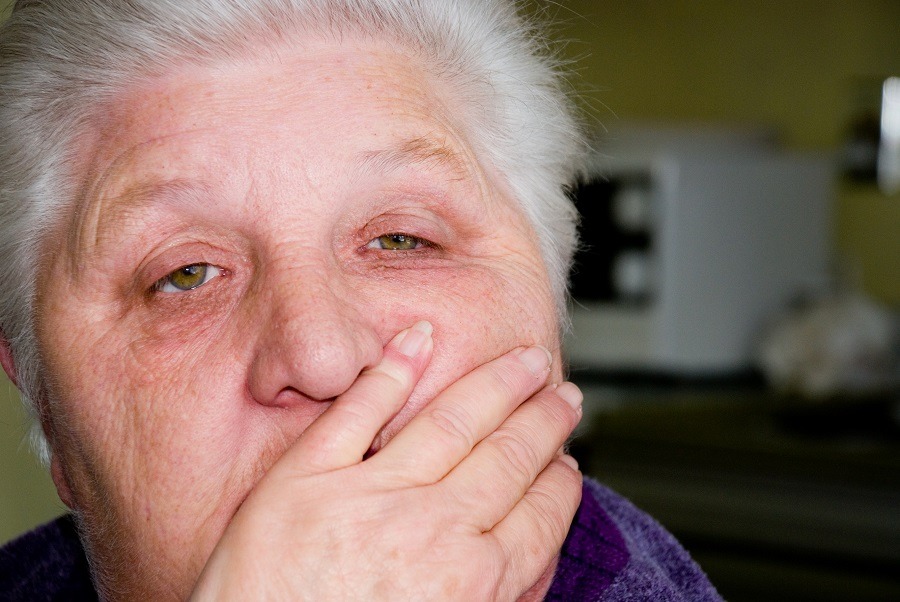Dementia and Anxiety


While memory loss and impairment are thought to be the hallmark symptoms of dementia, there are many behavioural and psychological signs that can be particularly distressing for caregivers. These include behaviours like agitation, restlessness, apathy, sleep disturbances or wandering and psychological concerns including delusions, hallucinations, paranoia, depression or anxiety.
Anxiety is believed to affect as many as twenty percent of people with dementia and it is also very common for dementia patients to experience anxiety and depression at the same time. Anxiety is usually most obvious in the early stages of the disease when people start to realize the seriousness of their impairments. In later stages, anxiety can be triggered when there are changes to routine, if they fear being left alone or start mixing up memories and fears from the past.
Untreated, anxiety can cause significant distress, affect day-to-day functioning and further deteriorate a dementia patient’s health. If you are worried your loved one is struggling with anxiety, treatments specific to dementia can ease symptoms and improve quality of life.
Is my Loved One Anxious?
Identifying anxiety in a person with dementia means that they can be treated and supported in the right way. However, because many of the symptoms of anxiety and dementia are alike, it can be hard to diagnose. Signs your loved one may be experiencing anxiety include:
- Irritability and agitation
- Feelings of dread
- Restlessness, pacing or fidgeting
- Avoiding social situations
- Stomach or chest pains, muscle tension
- Fast heartbeat
- Insomnia
- Repetitive behaviour or wandering
- Not wanting to be left alone
- Following carer or family members around
- Hoarding
- Panic attacks
How Can I Help?
If your suspicious are confirmed by a health professional, unlike dementia, anxiety symptoms can be treated effectively. However, the common approaches that work for most people are not usually successful in dementia patients. Anti-depressants can cause adverse effects like increased confusion, dangerous falls, interactions with other medications or can even make restlessness and anxiety worse. While not always the case, non-drug treatments are often safer and more effective options.
It can be helpful to figure out what might be causing your loved one’s anxiety and try to address it. If they had anxiety prior to their diagnosis, the things that used to help before will likely still be beneficial. Here are some other suggestions:
Find calm. If you loved one is feeling anxious, keep yourself composed, speak softly and try to relocate to a safe, quiet place. Encourage soothing activities like deep breathing or listening to music and reassure them that they are safe and you are here to help.
Stay social. Isolation can make anxiety and depression worse. Try to do more enjoyable activities together and encourage one-to-one interaction like talking and holding hands. Depending on your loved one’s level of communication and understanding, therapy can also be a great way to address anxiety symptoms.
Don’t overstimulate. Noise, crowds, unfamiliar people, bright lights and background distractions can all trigger anxiety. Try to stick to a reassuring daily routine and allow time for rest and quiet between activities.
Check for comfort. Is your loved one hungry, thirsty, hot, cold, tired, do they have to go to the bathroom, or are in they in pain? Not being able to express discomfort is a common anxiety trigger in dementia.
Get healthy. There is strong evidence that making healthy lifestyle choices can enhance quality of life with both dementia and anxiety. Depending on their physical health, try to incorporate daily exercise like walking, tai chi or gardening and encourage healthy eating choices. A support group with people going through similar experiences can also be very helpful.
Just like anything with dementia, be prepared that you may need to try lots of different approaches and something that works one day may not help the next. However, a dementia diagnosis does not mean the end of good mental health.
Talk to your health-care team to find the best form of treatment for your loved one and for other resources available in your community. Contact VHA Home HealthCare for more on how our professional dementia care services can help you.



